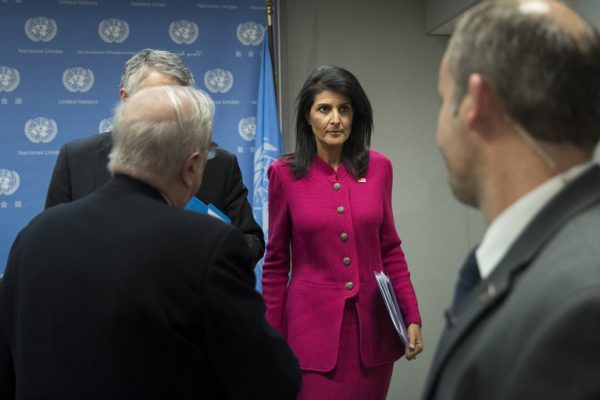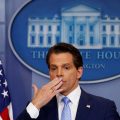
UNITED NATIONS — The Trump administration informed Congress on Monday that it had terminated United States funding for the United Nations Population Fund, the world’s leading provider of family planning services, including contraception, to women in at least 155 countries.
The United States is one of the top donor nations to the United Nations, and the denial of funding was one of President Trump’s biggest moves yet to reduce financing for family planning.
While the administration had signaled back in January that was adopting a tougher stance toward family planning services that provide abortion counseling, the move was nonetheless a stunning piece of news to advocates for women’s and children’s health, particularly in the developing world.
In a letter to the Senate Foreign Relations Committee, the State Department’s Bureau of Legislative Affairs said it had determined that the Population Fund “supports or participates in the management of a program of coercive abortion or involuntary sterilization,” a reference to the Kemp-Kasten Amendment, a 1980s-era law enacted in response to evidence of forced abortions and involuntary sterilization in China.
Women’s health advocates contend that evidence has repeatedly shown that the Population Fund’s work in China does not violate the amendment. But opponents of family planning have historically demanded that the United States end its support.
The Population Fund is the single largest international provider of contraception, family planning, and other reproductive health services. In 2016, health advocacy groups say, American support for the organization’s work prevented an estimated 320,000 pregnancies and averted 100,000 unsafe abortions, while ensuring 800,000 people had access to contraception.
The organization is financed with voluntary contributions. According to its 2015 annual report, the latest available, the United States was the fourth-largest donor with contributions exceeding $75 million.
The International Women’s Health Coalition, a New York-based group, said in a statement that the Trump administration’s decision was “a major blow to the world’s most important agency for reproductive health.” The Population Fund said that it regretted the decision, asserting it had been based on an “erroneous claim.”
Word of the shift in policy came hours after the American ambassador to the United Nations, Nikki R. Haley, told reporters that Secretary of State Rex W. Tillerson would devote his first visit to the world body to the “very timely” issue of North Korea.
Ms. Haley said Mr. Tillerson would attend an April 28 meeting of the Security Council dedicated to the North Korean nuclear threat. That issue is likely to loom large over this weekend’s planned meeting between Mr. Trump and his Chinese counterpart, Xi Jinping, she said, adding that she expected the administration to exert pressure on China.
“Hopefully China will respond favorably,” she said. “That’s what we all want.” She added, “That’s the goal of this weekend, to make sure China shows they are willing to act on North Korea, because at the end of the day, the only one North Korea is going to respond to is China.”
She was questioned repeatedly on human rights and the contrast between her intention to discuss the issue in the Security Council and Mr. Trump’s reluctance to emphasize it with world leaders, including Egypt’s president, Abdel Fattah el-Sisi, whom Mr. Trump said was doing “a fantastic job” during a meeting between the two leaders on Monday.
“Fantastic at what?” Ms. Haley said. “You know, he wasn’t talking about human rights. That’s why he didn’t say the president’s been fantastic on human rights.” She continued: “There’s a reason he didn’t say that. Those are conversations we have as well. That’s what you do with friends.”
Ms. Haley wants to devote a Security Council session this month to human rights and conflict, broadly speaking, but is getting resistance from other countries, including Russia. She took pains to say that her proposed human rights session was not intended to be “a gotcha game.”
The Security Council discusses human rights fairly often with regard to countries, like Syria, that are already on its agenda. Ms. Haley does not want to focus the session on a specific situation, according to a preparatory note circulated to council members. Critics question the proposal’s utility, beyond undermining the work of another body designed to address the issue, the United Nations Human Rights Council.


